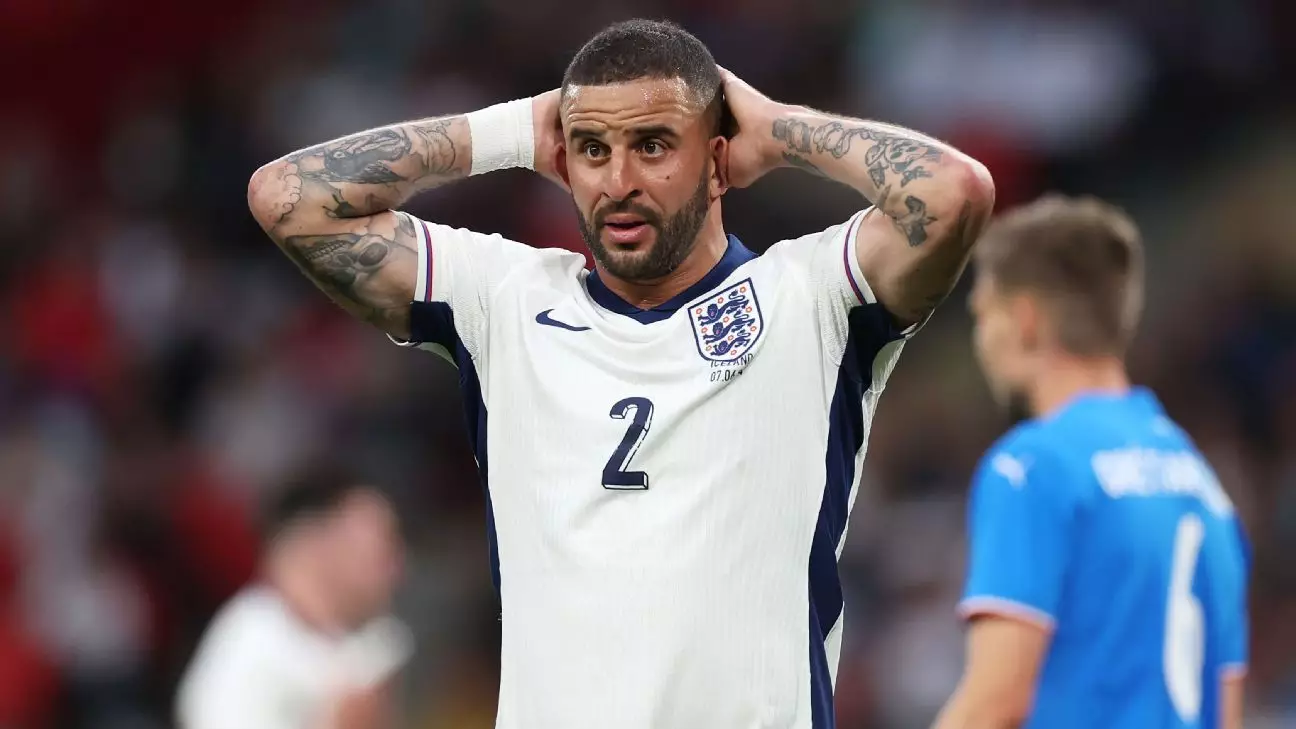In the fast-paced world of professional football, the relationship between club managers and national team coaches has never been more significant. Recent comments by Manchester City manager Pep Guardiola have brought to light a growing issue: the lack of communication regarding player fitness between international and club management. This concern became particularly pronounced following Kyle Walker’s injury, which he sustained while on duty with the England national team.
Walker’s knee injury incurred during England’s 2-0 victory over Finland has left Manchester City scrambling, as he remained absent for their critical match against Wolves. Guardiola expressed frustration at the absence of communication from the international managers, pointing out the detrimental impact it has on clubs in pivotal moments, especially during intense league fixtures. This incident serves as a stark reminder of how injuries acquired during international duty can severely affect club performance.
Guardiola recalled a previous instance involving John Stones, who sustained an injury in a friendly against Belgium just as City was preparing for an important Champions League quarterfinal against Real Madrid. Such injuries not only disrupt training schedules but also jeopardize the team’s competitive edge. Guardiola’s sentiments point to the urgent need for better dialogue from national managers regarding the condition of players post-international duties.
Once upon a time, direct discussions between national managers and club heads were standard practice, creating a collaborative environment to look after players’ well-being. As Guardiola mentioned, he would often receive calls from national team coaches during his playing days. However, a troubling shift seems to have occurred over the years, with the current setup showing a stark lack of proactive communication. This issue raises questions about the responsibility that both club and international coaches share in managing player health.
Guardiola did express some gratitude for the few instances when he has communicated with the Netherlands’ coach Ronald Koeman, indicating that personal relationships can bridge the gap. However, this ad-hoc approach is unlikely to be sustainable in the long run and highlights a notorious gap in protocol regarding player welfare.
As Manchester City prepares for their upcoming Champions League match against Sparta Prague, the absence of key players like Kevin De Bruyne—who is currently recuperating from his own injury—underscores the implications of these issues. Guardiola emphasized the need for players to regain full fitness before rejoining the fray, given that their performance directly influences the team’s success. The situation serves as a cautionary tale about the consequences of neglecting player health and the potentially disastrous impact of injuries on club ambitions.
Guardiola’s comments reverberate with a sense of urgency and appeal for mutual understanding within the football hierarchy. Improving the communication protocols between international and club levels could benefit not only the players’ physical health but the overall landscape of professional football.
Pep Guardiola’s observations illuminate a critical dialogue that needs to be had in football today. The sporadic communication between international and club managers can lead to significant disruptions and injuries that may limit a team’s performance. As clubs invest heavily in their players, it is paramount that national teams also engage in the conversation of player welfare, leading to a more integrated approach to managing athletes. Only through open lines of communication can the inherent challenges facing modern football be effectively navigated, fostering strength and resilience for both clubs and national teams alike.

